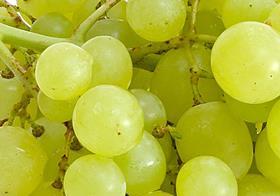
The South African table grape industry has closed its 2013 export season, reflecting on a year in which it failed to increase volumes to the Far East as the strength of the British pound and the euro lured volumes to the country’s traditional markets.
Despite damage to crops during the early season in the Orange River, the total volume of grapes delivered by growers for inspection only dropped by 1m cartons to 53.6m cartons, compared with last year’s record volume of 54.6m cartons.
However, only 52.1m cartons were actually exported, compared with last year’s 54.6m cartons.
Of this volume, 80 per cent were shipped to Europe, including Russia, and the UK, demonstrating that rather than gaining ground on the traditional markets, exports to the Far East have actually declined.
With 6.1m cartons shipped to Asia, volumes were only slightly higher than the 2010/11 season, and some 18 per cent less than last year.
Currency
Exports to the Middle East also declined as South African shippers reaped the benefits of better exchange rates in the traditional markets of the United Kingdom and Europe. South African currency has been declining steadily against the British pound, the euro and the US dollar this year, but in rand terms growers have performed better in pound and euro markets.
At the end of May the South African rand broke through the R15.00 level against the pound and reached R10.00 against the US dollar, trading at R13.23 against the euro.
Leading grape growers have said that despite the problems in the early season, they have had a very good campaign.
Hex River Valley’s Anton Viljoen said he had mixed results from his farms in the Orange River, but elsewhere things went well. “It is not often that good crops, excellent quality, good trading conditions and exchange rates all work in your favour as it did this year,' he said.
South African Table Grape Industry chairman Johan van Niekerk had also previously stated that, in general, the country had an excellent season.
Leading Elgin apple grower and former Chairman of Capespan, Dr Paul Clüver, noted that trading conditions would also benefit apple and pear growers, who are now in their peak export season.
“If growers complain about results this year, I do not know what will please them. It is generally one of those years in which everything is in our favour, but we must remember that the nature of the fruit business is such that you cannot depend on this happening every year,' he explained.
The recent sharp drop in the South African currency will please apple and pear growers even more, and will excite citrus growers who are only just seeing a peak in exports.



